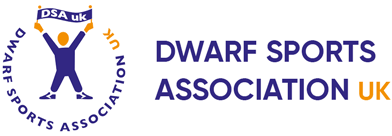Website Accessibility Statement
This website aims to conform to Level A standard of the W3C’s Web Accessibility Initiative’s Web Content Accessibility Guidelines. It also includes many features found in AA sites such as colour considerations and easily resizable fonts. We will continue to make improvements and make sure this website conforms to these guidelines. We welcome your feedback and would like to hear if you’ve had any accessibility issues when visiting the site. It is fully responsive and should be clear and functional regardless of whether you’re using a PC, tablet, smartphone or feature phone.
Accessibility features on this website
The following features improve navigation for text only browsers screen reader users, and users of keyboard navigation
Style sheets
This site uses Cascading Style Sheets (CSS) for visual layout.
Text size
You can change the font size of each page to your preference through the browser. •
- In Internet Explorer: select View, then Text Size, and then your preferred size.
- In Firefox: press CTRL + to increase font size and CTRL – to decrease. CTRL 0 will reset sizes to default.
- In Chrome: press CTRL + to increase font size and CTRL – to decrease. CTRL 0 will reset sizes to default.
Forms
Labels are used to assist access to form fields. All forms follow a logical tab sequence.
Tables
Tables are used to display tabular data. Tables are not used for general site layout. This means our tables are being used in a correct and meaningful manner.
Colours
The site has been designed to be easy to read through its colour combinations.
Links
We have worked hard to ensure that our links are meaningful, and some links are explained in greater detail by using a title attribute.
Scripting
JavaScript is used on the site to improve usability. All pages and processes are still accessible and usable if JavaScript is disabled or unavailable.
Headings
Headings are used in a consistent way to reflect the structure of the page, not for styling purposes.
Browsers
This website is built to HTML5 and CSS 3.0 standards. This website will function and look as intended in browsers that support these standards. If you have an old browser installed you may find the website easier to use by disabling CSS altogether – please see your browsers help documentation for further information.
Standards compliance
Our pages aim to conform to Level A compliance as specified by the Web Content Accessibility Guidelines. This standard is endorsed by the Royal National Institute for the Blind (RNIB) and the Disability Rights Commission . Our pages use valid HTML5 and CSS3 whenever possible (see the note below about jQuery CSS). To ensure code quality and that standards are maintained we are committed to checking this on a regular basis.
jQuery
The site uses jQuery a javascript library designed to make scripting simple and work the same across browsers.
Many of the biggest companies on the Web use jQuery, such as:
- Microsoft
- IBM
- Netflix
The CSS that comes with jQuery does not validate according to the W3C validator. However, this doesn’t matter because it has been extensively tested and show to work across all browsers and be fully accessible. We see improving the user experience as the important objective, not adherence to arbitary standards that may degrade that experience.
Our Commitment to Accessibility
We are always working hard to ensure that all the media we produce are as accessible as possible. We welcome your feedback and would like to hear if you’ve had any accessibility issues when visiting the site or have any suggestions that would help improve accessibility.

